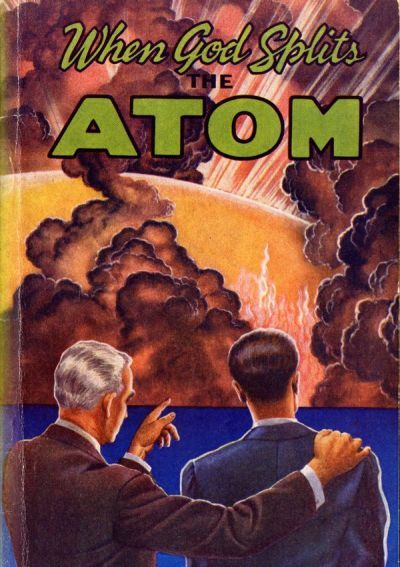The advent of the atomic bomb had a profound psychological effect on the people of the United States. Sociologists, psychologists, theologians, and philosophers, though separated by practical expertise from the technicalities of the bomb itself, were acutely aware of its power to influence human thought and emotion. Not long after the establishment of peace in the Pacific, academics began to examine the social, moral, and religious effects of the bomb, ultimately creating an entire field of study within the human sciences.
For a brief moment in the United States, the atomic bomb represented victory.1 It symbolized America's achievement through technology and willpower, and was a weapon to be celebrated. This vision of just power, however, was not endless. As images from Japan began to appear in newspapers and experts began discussing deaths in the tens and even hundreds of thousands, the righteousness of the bomb began to fade. It was effectively stomped out with the first Soviet atomic test in 1949. Private citizens began asking themselves the same question that had been gnawing at scientists and military experts since the days of the Manhattan Project: What have we done?

